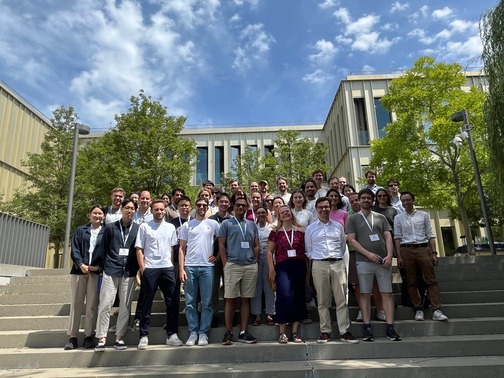The Medici Summer School
The Medici Summer School in Management Studies is a unique opportunity for doctoral students and young researchers to interact with thought leaders in the management field. The Summer School combines lectures and research seminars that contribute to the development of enlightened practice in the management of business.
Founding History
The Medici Summer School in Management Studies was founded in 2009 by Gianni Lorenzoni, Rodolphe Durand, Simone Ferriani, Joe Porac and Gino Cattani to promote doctoral education and research in organization theory and related fields (economic sociology, management studies, strategy) and contribute to the development of enlightened practices in the management of business organizations. The Summer School was named after the celebrated patron of arts and science Lorenzo de Medici, who helped imprint the western world with humanism by catalysing extraordinary scholars, artists and intellectuals.
In 2013, Emilio Castilla and Ezra Zuckerman joined the founding board bringing new impetus to the development of the School and helping to consolidate its role as a leading international institution in the field of managerial doctoral education. Today the Medici Summer School is the expression of the concerted organizing effort of three institutions – MIT Sloan School of Management (Economic Sociology PhD Program), BBS (Bologna Business School), and HEC Paris (Sustainability & Organizations Institute and the HEC Foundation) – devoted to scholarly excellence and empowerment of future academic leaders.
The Medici has played an important part in fostering innumerable collaborations, articles and dissertations. It advocates a special focus on cross-fertilizing research across North American and European traditions, facilitating an ongoing conversation around leading edge topics in management, sociology and organizational sciences across the world. Now into its second decade, the Summer School stands as an exemplar of productive transnational scholarly collaboration, and it remains a catalyst of thought leaders and exciting research ideas: a party of “curious spirts” more than a grouping of academics.
Organizing committee
- Emilio J. Castilla, MIT Sloan School of Management
- Rodolphe Durand, HEC Paris S&O Institute
- Simone Ferriani, Bologna Business School & Bayes
- Ezra Zuckerman Sivan, MIT Sloan School of Management
Mission and Format
The Medici Summer School is hosted yearly, on a rotating basis, by the three founding institutions. It combines lectures and research seminars by prominent international scholars with active engagement by participating students. Every day of the one-week program is scheduled to end with the presentation of students’ research related to the topic of the School and with a panel of senior faculty providing feedback. The School has also a tradition of hosting keynote speeches from leading practitioners as well as organizing short field trips to local places of intellectual interest, including companies, research labs, NGOs, museums, etc.
A typical day will feature a guest faculty member presenting on their research, an integrative session led by a host faculty member that explores links among the guest faculty research, and a workshop in which the host and guest faculty work with students to flesh out their own ideas, both theoretically and empirically.
Overall, students will advance in their own research via:
- Exposure to the cutting edge of research in this area
- Open discussion of key research challenges experienced by the faculty in their own research
- Direct feedback on how to tackle complex questions of both theory and empirics
There is no fee to participate. Selected candidates are fully covered in their accommodation expenses provided that they stay the full week. However, transportation is not covered by the organizers. Students come from all over the world.

Past Editions
The 17th edition of the Medici Summer School was hosted by the S&O Institute at HEC Paris and co-organized with MIT Sloan School of Management and Bologna Business School.
Guest Faculty Members:
Todd Zenger, David Eccles School of Business at the University of Utah
Erin Metz McDonnell, The Kellogg Institute for International Studies, University of Notre Dame
Rodolphe Durand, Sustainability & Organizations Institute, HEC Paris
Rodrigo Canales, Questrom School of Business, Boston University
Anna Jasinenko, University of St Gallen
The 16th edition of the Medici Summer School was hosted by the Bologna Business School and co-organized with the S&O Institute at HEC Paris and MIT Sloan School of Management.
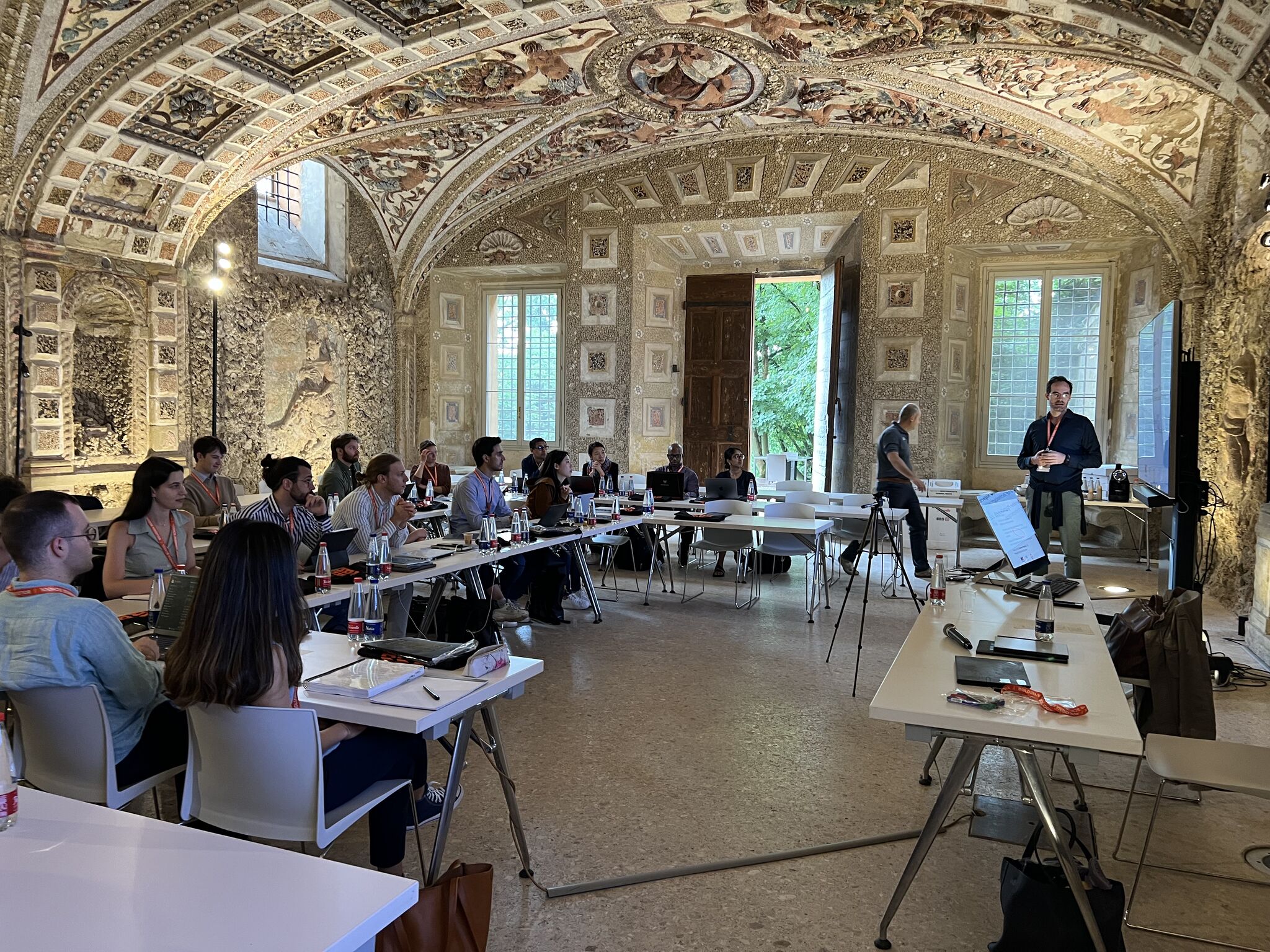
Guest Faculty Members:
- Mercedes Delgado, CBS
- Abhishek Nagaraj, Berkeley Haas
- Juan Alcacer, Harvard Business School
- Ezra Zuckerman Sivan, MIT Sloan School of Management
- Catherine Magelssen, LBS
More informations about the XVI Medici Summer School edition
The 15th edition of the Medici Summer School was hosted by MIT Sloan School of Management and co-organized with the S&O Institute at HEC Paris and the Bologna Business School.
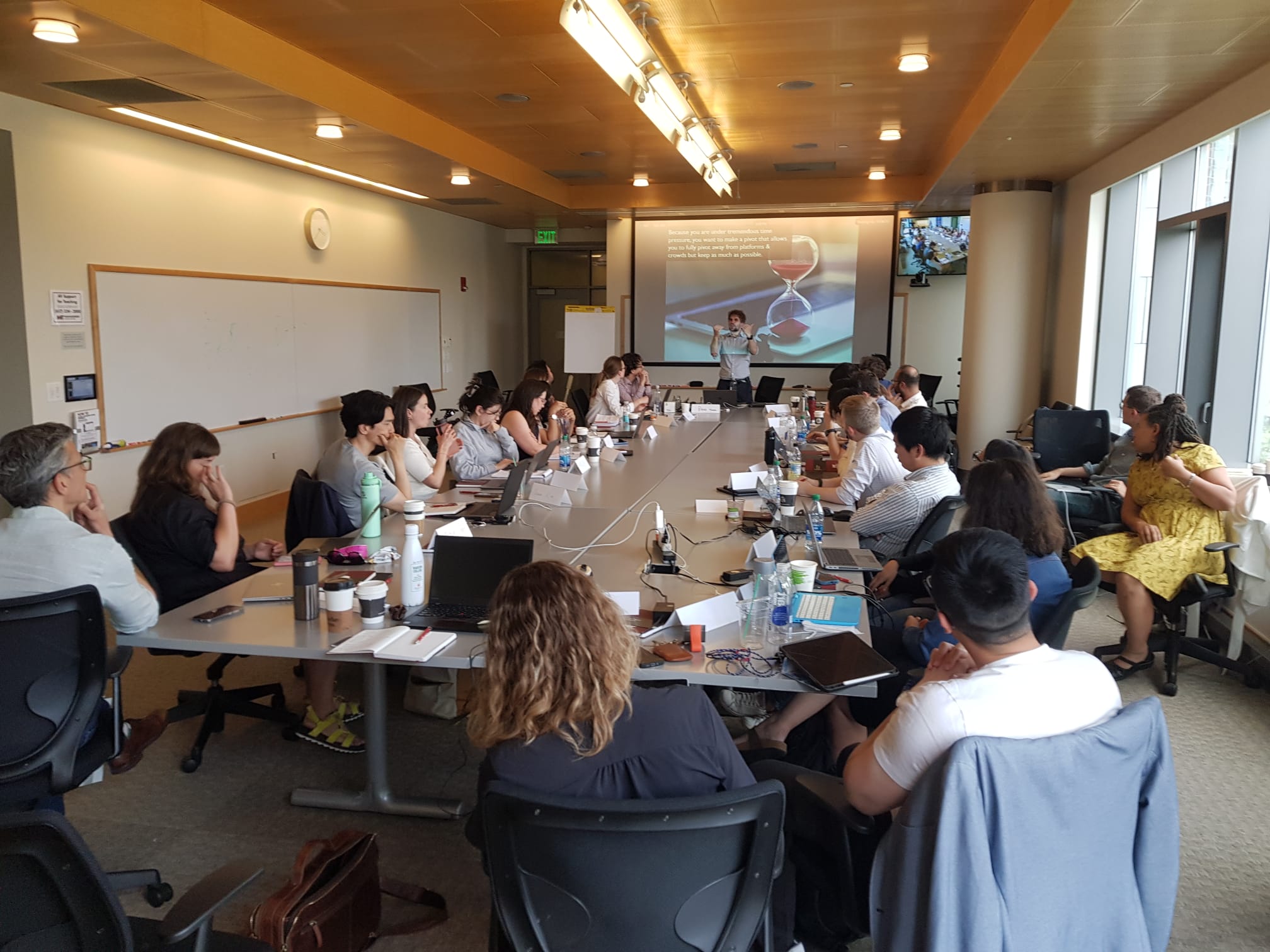
Guest Faculty Members:
- Henning Piezunka, INSEAD
- Lindsey Cameron, Penn Wharton
- Carliss Baldwin, Harvard Business School
- Michael Luca, Harvard Business School
- James Riley, Harvard Business School
- Annabelle Gawer, Surrey
- Michael Cusumano, MIT Sloan School of Management
- Georg Rilinger, MIT Sloan School of Management
- Juliet Schor, Boston College
- Carmelo Cennamo, Copenhagen Business School
The 14th edition of the Medici Summer School was hosted this year by the S&O Institute at HEC Paris and co-organized with the Bologna Business School and MIT Sloan School of Management. Return to the real life with 25 Ph.D students from all over the world. Due to the urgent need to review our production methods from a climate action perspective, organizations broaden their actions and define new metrics for performance, and so, our group was able to redefine what is strategic and what is not.
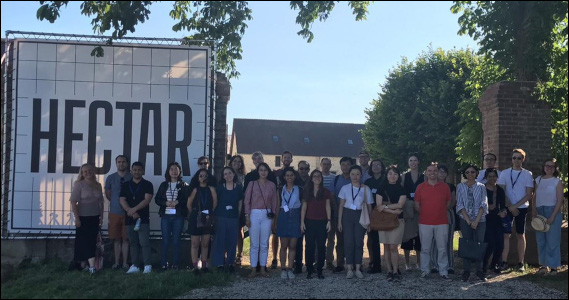
Guest Faculty Members:
- Kate ODZIEMKOWSKA, Rice University
- Marya BESHAROV, Saïd Business School University of Oxford
- John DE FIGUEIREDO, Duke University School of Law and the Fuqua School of Business
- Ezra ZUCKERMAN SIVAN, MIT Sloan School of Management
- Rodolphe DURAND, HEC Paris S&O Institute
- Caroline FLAMMER, Columbia University
More informations about the XIV Medici Summer School edition
The 13th edition of the Medici Summer School on Cooperation in organizing and innovating was hosted by Bologna Business School and organized online. 25 PhD students had a fruitful and intense week which shed light on the sources and consequences of cooperation as a general principle for organizing and innovating.
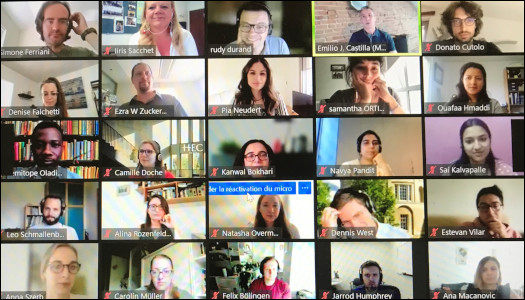
Guest Faculty Members:
- Ray REAGANS, MIT Sloan School of Management
- Delia BALDASSARRI, New York University
- Claudine GARTENBERG, The Wharton School, University of Pennsylvania
- Alessandro LOMI, University of Lugano
- Arnout VAN DE RIJT, European University Institute
More informations about the XIII Medici Summer School edition
The 12th edition of the Medici Summer School, hosted by MIT Sloan School of Management, was held online. The School gathered 25 PhD students around the world to work and reflect on the Strategies for the future of work. The intense week combined lectures and research seminars by prominent international scholars with active engagement of participating students.
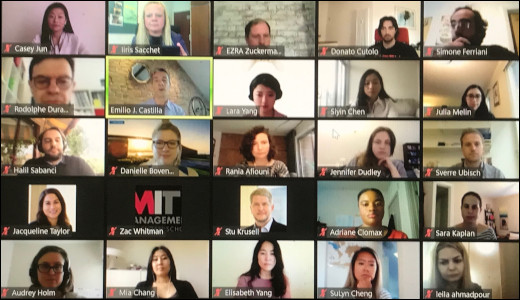
Guest faculty members:
- Peter CAPELLI, The Wharton School
- Clarita GËRXHANI, European University Institute
- Paul ADLER, University of Southern California
- Ruthanne HUISING, EMLYON Business School
- András TILCSIK, University of Toronto
More informations about the XII Medici Summer School edition
The 11th edition of the Medici Summer School took place on HEC Paris Campus, gathering 25 PhD students from a various range of top business schools and universities. During their stay, Medici Summer School participants had the opportunity to visit a particle accelerator and discover IPANEMA, a research institution using technology to analyse ancient artistic and historical materials.
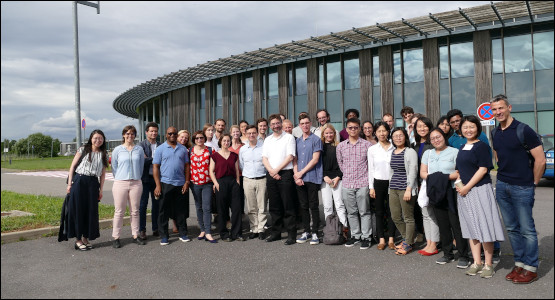
Guest faculty members:
- Gary A. FINE, Northwestern University
- Deepack HEGDE, NYU Stern
- David HSU, Wharton School, University of Pennsylvania
- Denisa MINDRUTA, HEC Paris
- Damon PHILLIPS, Columbia Business School
The 10th edition of the Medici Summer School was held from June 11 to 15, 2018 in the wonderful Villa Guastavillani, where the Business School of the University of Bologna is located. The purpose of this Summer School was to bring together a group of researchers on the theme Organizations as vehicles and settings for social changes.
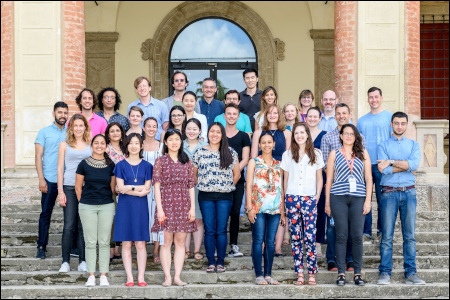
Guest Faculty Members:
- Joanna MAIR, Hertie School
- Brian RUBINEAU, McGill University
- Ezra ZUCKERMAN, MIT Sloan School of Management
- Harry COLLINS, Cardiff University
- Brayden KING, Kellogg School of Management, Northwestern University
- Jennifer HOWARD GREENVILLE, Judge Business School, University of Cambridge
The 9th edition of the Medici Summer School was held in Cambridge, Massachusetts, June 19 - June 23, 2017. The purpose of The 2017 Medici Summer School was to bring together a group of researchers who share a concern for advancing our knowledge about the organization of innovation and entrepreneurship. In particular, our goal was to discuss cutting-edge research that sheds new light on the theoretical mechanisms and processes that explain how innovation processes work and can be improved; and on the mechanisms and processes responsible for new venture formation.
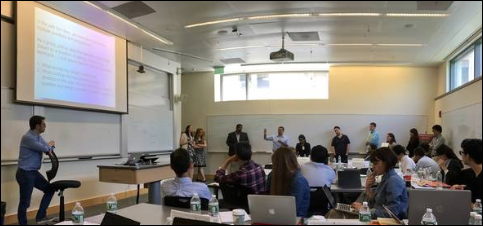
Guest Faculty Members:
- Rodolphe DURAND, HEC Paris
- Ethan MOLLIK, University of Pennsylvania
- Toby STUART, University of California, Berkeley
- Karim LAKHANI, Harvard Business School
- Fiona MURRAY, MIT Sloan School of Management
- Mary TRIPSAS, Boston College
Hosted by HEC Paris, the program of the 2016 Medici Summer School focused on the organizational foundations of inequality.
At the core of research in organization theory and practice lies the fundamental premise that organizations play a key role in generating and sustaining inequality. To date, significant progress has been made in identifying and testing the particular mechanisms that may account for how organizations affect social stratification. Prior research has documented the significance of organizations for understanding inequality and diversity, as they both determine the matching of individuals to positions in the labor market, and implement the evaluation and reward structures used to distribute power, wealth and prestige among individuals and groups.
As such, organizations and organizational practices influence inequality at different stages of the employment process, given that employers manage hiring and job assignments, training and development possibilities, compensation, and promotion and termination processes. Consequently, the distribution of resources and opportunities in society cannot be fully understood without paying attention to the role that organizations and their practices and key organizational members play in contemporary stratification processes and employment outcomes.
Guest faculty Members:
- Roberto FERNANDEZ, MIT Sloan School of Management
- Trond PETERSEN, University of California
- Roxana BARBULESCU, HEC Paris
- Frank DOBBIN, Harvard University
- Michael DAHL, Aarhus University
The 2015 edition of the Medici Summer School was held in Bologna, from May 31 to June 5. Social valuation as a research topic has attracted considerable attention in recent years. This trend has manifested itself across multiple literatures. Economic sociologists have analyzed the workings of markets for the production of value; students of inequality have analyzed the distribution of social honor in societies and the effect of status characteristics on distributive outcomes; organizational sociologists have studied processes of categorization; cultural sociologists have examined cultural valuation of symbolic goods and social practices; and management scholars have long been concerned with questions of performance and its evaluation. Although they draw from different theoretical perspectives and methodological approaches, these and related lines of work have much to gain from dialogue with one another.
Thanks to Romain BOULONGNE, HEC Paris PhD student, please find HERE this 7th edition day by day!
PhD participants talk about the 2015 edition:
- "I'd describe Medici as 'a superb opportunity to be immersed in interesting ideas with top-notch people; both faculty and fellow students' ", Kyle SILER, post-doctoral fellow at the Rotman School of Management, University of Toronto.
- "It was a once-in-a-life-time opportunity to be surrounded by faculty and students of this caliber, and I will carry this experience over to my research throughout my academic career. Plus, who doesn't want to study in the oldest university in the world? ", Minjae KIM, MIT Sloan School of Management.
- "Outstanding lecturers, interesting and diverse selection of participants, inspiring program overall ", Michele PIAZZAI, Delft University of Technology, Amsterdam Business School.
- "The Medici School offers an amazing opportunity to meet and develop deep relationships with both like-minded students and prominent faculty alike. The Medici School was without a doubt one of the most memorable and defining experiences of my graduate school career", Derek HARMON, USC Marshall School of Business.
- "The most fun and productive week of my PhD experience”, Justin FRAKE, University of Maryland.
- "The Medici Summer School has been one of the most enriching experiences of my doctoral career. Being able to interact with the top faculty and students in my area of research led not only to rich intellectual exchange and new ideas, but also to a network of friends that I will stay in touch with for the rest of my career. Can't recommend it highly enough", Pete ACEVES, University of Chicago.
- "The Medici School is a unique and powerful learning experience. It is unique in a sense that you get to interact with top-notch scholars in a very intimate context; the School is powerful as well because you are likely to form long-lasting relationships with fellow PhD students with whom you are likely to share common research interests. In a nutshell, I couldn't recommend it more ", says Romain BOULONGNE, HEC Paris.
Guest Faculty members :
- Glenn CAROLL, Stanford University
- Gael LE MENS, Pompeu Fabra University
- Isabel FERNANDEZ-MATEO, London Business School
- Christophe VAN DEN BULTE, The Wharton School
- Robb WILLER, Stanford University
Held in Florence, Italy, on June 1-6, the program of the 2014 edition focused on deviance and deviants. Whereas conformity, consistency, stability, “typecasting”, imprinting, and isomorphic pressures are powerful, it is deviants and deviance behaviors that underlie change and dynamism.
The 2014 Medici School brought together interdisciplinary scholarship at multiple levels of analysis to understand the role of deviance and deviants in many social and business phenomena.
Guest Faculty Members:
- Michele GELFAND, University of Maryland, College Park., USA
- Fabrizio FERRARO, IESE Spain
- Melissa SCHILLING, Stern School of Business, New York University, USA
- Don PALMER, UC Davis, USA
- Madan PILLUTLA, London Business School, UK
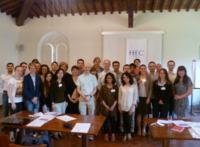
The 5th edition of the Medici Summer School in Management Studies was helded in Florence, June 9-14, 2013, on Internationalization Strategies: old questions, new contexts.
The program included discussions on the current state of research on internationalization and the advantages it may accrue to firms. It also covered the directions for future research related not only to new phenomena, but also new settings and theoretical frameworks useful to understand internationalization.
Keeping on with the School’s tradition of analyzing managerial phenomena from different levels of analysis, internationalization was looked upon first from the firm perspective, then from the organizational network perspective, and finally with a discussion on the increasingly prominent role context, comprising civil society and governments, plays in shaping firms’ decisions.
Common issues raised all through the week were related to the need for stronger theoretical development in research on internationalization, including the use of the most updated developments in theories borrowed from other fields, such as economics, sociology and political science.
The school welcomed 25 doctoral students from European, North American and Middle Eastern universities (e.g. HEC, Bologna, CBS, Aalto, Manchester, ESADE, Wharton, Illinois, Ivey, Hebrew, etc).
Guest Faculty Members:
- Stephen TALLMAN, University of Richmond
- Torben PEDERSEN, Copenhagen Business School
- Xavier MARTIN, Tilburg University
- Tatiana KOSTOV, Moore School of Business, University of South Carolina
- Sinziana DOROBANTU, Stern School of Business, New York University
The 4th edition of the Medici Summer School in Management Studies was held in Florence, June 24-29, 2012. It focused on Creativity, Status and Legitimation.
Guest faculty members:
- Jack GONCALO, Cornell University
- Steven BLADER, Stern School of Business, New York University
- Joe MAGEE, Stern School of Business, New York University
- Mihaly CSIKSZENTMIHALYI, C.S. and D.J.Davidson Claremont Graduate University
- Stoyan SGOUREV, ESSEC Business School
In 2011, the theme of the Medici Summer School was developed in liaison with the GDF-Suez Chair on Business and Sustainability: “Beyond performance: sustainability in question”. 26 doctoral students from European and US universities (among others Duke, Erasmus, IESE, Imperial College, NYU, HEC, North-western, Politecnico Milano, Oxford, University of Zurich, Warwick) participated in the School which was organize in Florence.
The “journey” began with a cognitive approach, moved to discussions on the change in paradigm due to CSR concerns, then to institutional pressures linked to CSR, to strategizing about CSR and eventually to social movements. Common issues raised all through the week were concerns about the lack of a clear definition of the concept of sustainability, the difficulty for researchers to publish papers on CSR in academic journals, the predominance of the economic paradigm that sees firms as rational profit-seekers.
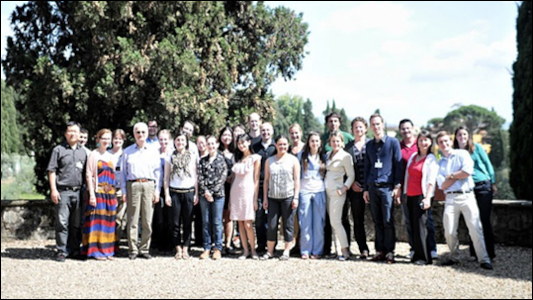
Guest Faculty Members:
- Rodolphe DURAND, HEC Paris
- Frances MILLIKEN, Stern School of Business, New York University
- Tima BANSAL, Ivey School of Business, University of Western Ontario
- Michael RUSSO, University of Oregon
- Klaus WEBER, Kellogg School of Management, Northwestern University
The 2010 Medici Summer School was held in La Pietra International Conference and Events Center in Florence.
25 PhD students from various universities including Oxford, Cambridge, NYU, McGill, LBS, Bologna, and HEC, among others, attended the school.
This year’s focus was on the role that “unexpected events” play in organizational functioning. The discussions revolved around two key questions: How do unexpected events affect, and get shaped by, organizations? How can managers learn from and manage unexpected events?
Starting with a discussion on the notion of rare events and their meaning for research on strategy and organizations, the summer school continued with the application of econometric models to rare events and examined how these models fare in the presence of rare events. The focus then shifted to the cognitive aspects of rare events, and how managerial interpretation mattered. Finally, the current state of research on rare events and possible avenues for future research on the subject was explored.
Guest Faculty Members:
- Joe LAMPEL, City University
- William GREENE, NYU
- Raghu GARUD, Penn State University
- Zur SHAPIRA, NYU
- Jerker DENRELL, Oxford University
The 1st Medici Summer School in Management Studies was held in the Villa La Pietra on July 5–10, 2009. It was co-sponsored and co-organized by Alma Graduate School (University of Bologna), HEC Paris, and Stern School of Business (New York University).
The Summer School revolved around categories and identities of and in organizations. The key question of botcademic and managerial relevance we dealt with was: How do organizational categories shape, and get shaped by, organizational fields?
This question itself is motivated by both longstanding and contemporary strategy and organizations research. It is intimately associated with the problem of establishing “boundaries” in the study of organizations and industries. Everyday language provides much grist for distinguishing one type of organizational form from another. We know, almost intuitively, that an “airline” is a different form than a “bank”, and we speak effortlessly of the “airline industry” or “financial services.”
And yet, forms and industries have been historically difficult to define and demarcate in systematic ways. In economics, for example, longstanding debates have occurred over how best to determine the boundaries between one industry or market and another, with no clear consensus emerging even today.
There is a growing consensus in some research areas that the boundaries of industries, fields, markets, and/or populations are not to be found in the intrinsic characteristics of firms themselves but, rather, are cognitive categories that are defined by one or more groups of relevant observers (e.g., customers, suppliers, rivals, investors, etc.).
This cognitive turn has very important implications for the study of forms in situ. It implies that language and linguistic conventions are primary data points in demarcating one form from another. It suggests the possibility that organizational forms and identities are relative to a community of observers, and that different communities can define the same organization in different ways depending on their perspective and observational goals.
Guest Faculty Members:
- Joe PORAC, New York University
- Giovanni GAVETTI, Harvard
- Ezra ZUCKERMAN and Raghu GARUD, Penn State
- Huggy RAO, Stanford University
- Elizabeth PONTIKES, University of Chicago
